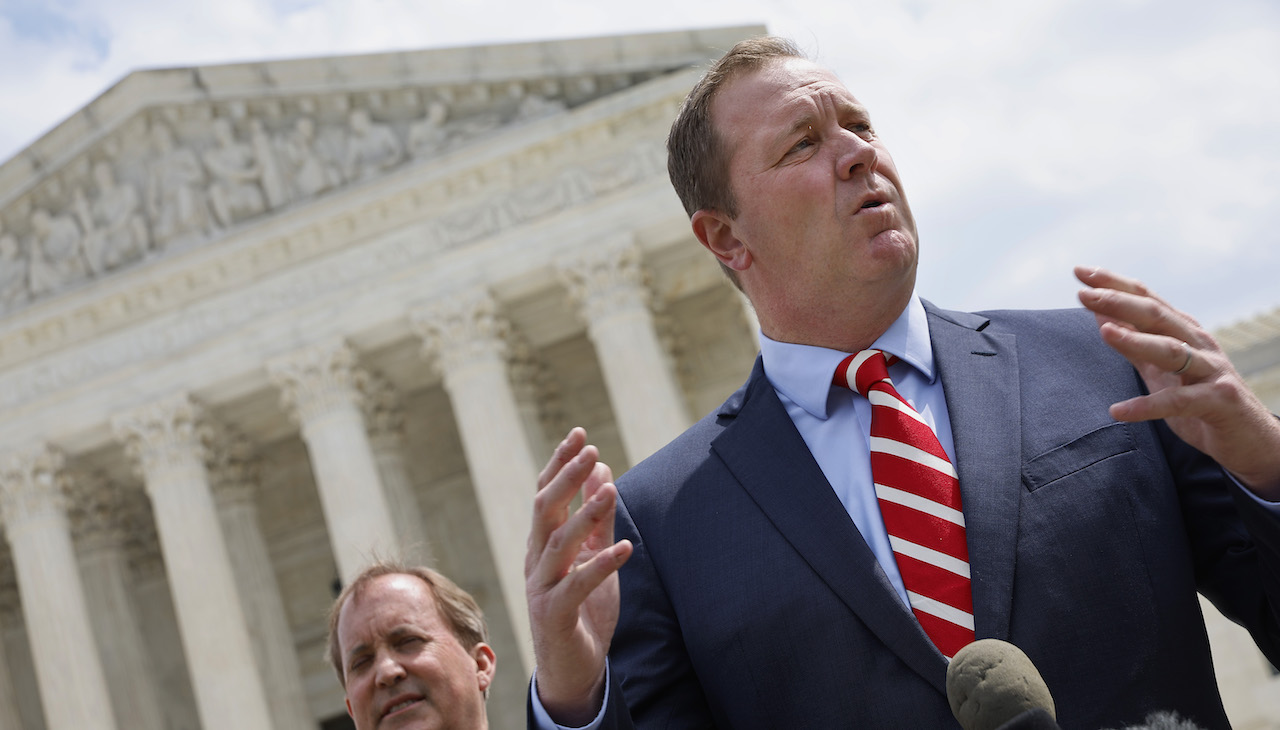
With Roe gone, Republican-controlled states quickly implement abortion bans, restrictions
It took Missouri minutes to implement its ban, while others are putting severe restrictions on the procedure that were previously held up.
When the U.S. Supreme Court announced its overturn of Roe v. Wade on the morning of Friday, June 24, Missouri state Attorney General Eric Schmitt issued an opinion that outlawed abortion in the state after eight weeks, with no exceptions for rape or incest, less than 10 minutes later.
With the opinion, Missouri became officially the first state to enact a trigger ban in the aftermath of the Supreme Court decision.
There are currently 22 states in the U.S. that either have similar trigger laws to Missouri, laws on the books from prior to Roe v. Wade’s initial 1973 decision, or a combination of both.
In addition to Missouri, which is the only state with an eight-week abortion ban, 12 have bans after six weeks. They are: Georgia, Idaho, Iowa, Kentucky, Louisiana, Mississippi, North Dakota, Ohio, Oklahoma, South Carolina, Tennessee, and Texas.
Of the states with six-week bans, Texas, Mississippi and Oklahoma also join West Virginia, Wisconsin, Alabama, Arizona, Arkansas and Michigan, as states already with abortion bans on the books prior to the 1973 Roe ruling.
RELATED CONTENT
All but Michigan, who is led by Democratic Governor Gretchen Whitmer, are expected to re-enforce their long banned laws against abortion rights. The state has a 1931 law on the books that bans abortions without exception for rape or incest that could take effect should a state court ruling be overturned.
Whitmer has taken a lawsuit to Michigan’s Supreme Court that would clarify under the state’s constitution protects women’s abortion rights. That court’s political makeup is currently four Democrats and three Republicans.
“Time is of the essence. We need our state Supreme Court to take up my lawsuit NOW,” she wrote on Twitter.
I’ve filed a motion urging the Michigan Supreme Court to immediately take up my lawsuit to protect abortion for Michigan women.
— Governor Gretchen Whitmer (@GovWhitmer) June 24, 2022
The urgency of this moment is clear: we MUST clarify whether this right is constitutionally protected under Michigan law.
Following the overturn of Roe v. Wade, states have 30 days to enact their trigger laws.
Beyond the 22 with laws on the books, the pro-choice Guttmacher Institute predicts four more states will enact abortion bans in the immediate future. They are: Florida, which tried and failed in 2021 to enact a 20-week ban, but later succeeded to pass a 15-week ban set to take effect in July 2022; Indiana, which has passed some 55 anti-abortion measures over the last decade, meaning a comprehensive bill is likely imminent; Montana, where a court order is currently keeping a 20-week abortion ban passed in 2021 from being enforced; and Nebraska, which enacted a 22-week ban in 2010 before implementing another on a standard abortion procedure at 15 weeks.
Further abortion bans in other states will likely need to go through the legislative process after the 2022 elections, which will determine a number of state legislatures and governorships for the next four years.











LEAVE A COMMENT:
Join the discussion! Leave a comment.